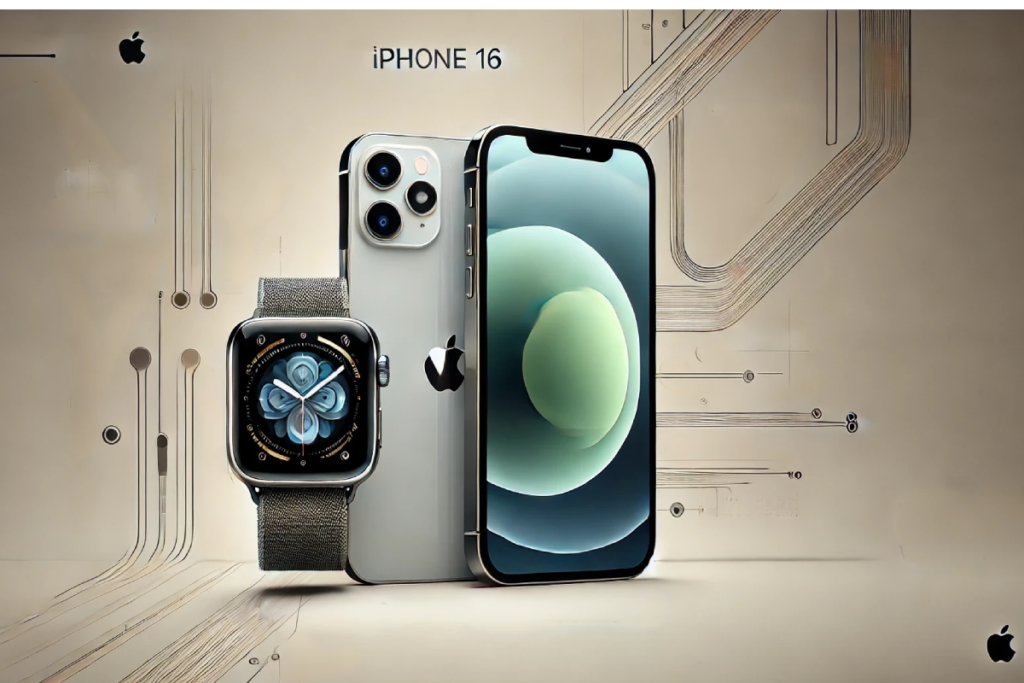Apple recently announced the highly anticipated iPhone 16 and Watch Series 10, but one key feature that won’t drive sales anytime soon is AI (Artificial Intelligence). Despite the global rise of AI in technology, Apple seems to be taking a more cautious approach when it comes to integrating AI into its devices, choosing instead to focus on refining the hardware and software experience in the new iPhone 16 and Watch Series 10. In this blog post, we’ll explore the major features of these new products, discuss why AI may not boost sales just yet, and what we can expect from Apple in the near future.
iPhone 16: What’s New?
Apple’s iPhone 16 brings a slew of upgrades that are expected to enhance user experience, focusing primarily on performance, camera improvements, and design enhancements. High-volume keywords: “iPhone 16 features,” “new iPhone 2024,” “Apple iPhone launch.”
Camera Upgrades and Performance
One of the standout features of the iPhone 16 is its upgraded camera system, which includes a new 48MP main sensor, improved night mode, and enhanced zoom capabilities. The A18 chip provides better power efficiency and faster processing, allowing users to run apps and games with smoother performance.
Example: For photography enthusiasts, the iPhone 16 promises stunning image quality, with deep learning algorithms working behind the scenes to improve photo processing—though not directly marketed as an AI-driven feature.
Design and Display
Apple has introduced a refined design with thinner bezels and a slightly larger display. The new model is also expected to feature a titanium frame for better durability while maintaining its sleek aesthetic.
Example: The 120Hz ProMotion display, which adjusts refresh rates dynamically, improves the viewing experience for video streaming and gaming, making the iPhone 16 a more attractive device for content consumption.
Watch Series 10: A Health and Fitness Powerhouse
Alongside the iPhone 16, Apple has also revealed the Watch Series 10, which continues to build on its reputation as a health and fitness companion. High-volume keywords: “Apple Watch Series 10 features,” “new Apple Watch health tools,” “Apple wearable technology.”
Advanced Health Monitoring
The Watch Series 10 introduces advanced health-monitoring features, including continuous glucose monitoring and improved heart rate sensors. With these updates, Apple is positioning the Watch Series 10 as a must-have for fitness enthusiasts and those who prioritize health.
Example: The glucose monitoring feature, in particular, could be a game-changer for people with diabetes, providing real-time data without the need for invasive testing.
Enhanced Battery Life
Apple’s latest smartwatch boasts an enhanced battery life that supports 24 hours of usage, even with the most demanding health tracking features enabled. The improved battery performance ensures that users can enjoy full functionality throughout the day without constantly needing to recharge.
Why AI Won’t Boost iPhone Sales Just Yet
While AI is transforming many tech sectors, Apple seems to be taking a more restrained approach when it comes to integrating AI into its flagship products. High-volume keywords: “AI in iPhones,” “iPhone 16 AI features,” “Apple AI strategy.”
Incremental AI Enhancements
While AI features exist in the iPhone 16 and Watch Series 10—such as improved Siri functionality and image processing—Apple has chosen not to heavily market AI as a core selling point. Unlike companies like Google, which focus on AI-driven features like Assistant and Google Photos, Apple is sticking to its philosophy of hardware-software integration with AI running in the background rather than taking the spotlight.
Example: The iPhone 16 may use machine learning to improve battery life or photo editing capabilities, but Apple has not branded these enhancements as AI-first technologies, which may explain why AI is not expected to be the major sales driver for these products.
Focus on User Experience
Apple’s strength lies in its ability to deliver a seamless user experience. The company is known for its hardware and software integration, ensuring that all devices work harmoniously. Instead of pushing AI, Apple continues to prioritize user-friendly features, ease of use, and overall performance.
Example: Apple’s ecosystem approach, where the iPhone, Apple Watch, iPad, and Mac all work together, plays a more significant role in maintaining its loyal customer base than AI-driven innovations alone.
What’s Next for AI in Apple Products?
Although AI may not boost iPhone sales immediately, it doesn’t mean Apple is neglecting it altogether. The company is likely working on more robust AI integrations for future releases, particularly in the realms of augmented reality (AR) and AI assistants.
AI-Powered Features in Future Devices
As Apple continues to develop its Apple Vision Pro mixed-reality headset, we can expect more AI-powered features that will be integrated across its device ecosystem. This could include better real-time translations, augmented reality gaming, and voice assistant improvements.
Example: Future iPhone models could see more extensive AI features like advanced facial recognition, predictive text input, or even real-time language translation embedded into the messaging app.
Conclusion
While AI may not be the primary driver behind iPhone 16 and Watch Series 10 sales, these devices still boast a range of improvements that make them highly appealing to consumers. Apple is focusing on enhancing user experience through hardware upgrades and seamless software integration, while AI plays a more subtle role in improving features behind the scenes. For those eagerly awaiting a future where AI is central to Apple’s offerings, patience may be required—but rest assured, exciting innovations are likely just around the corner.


